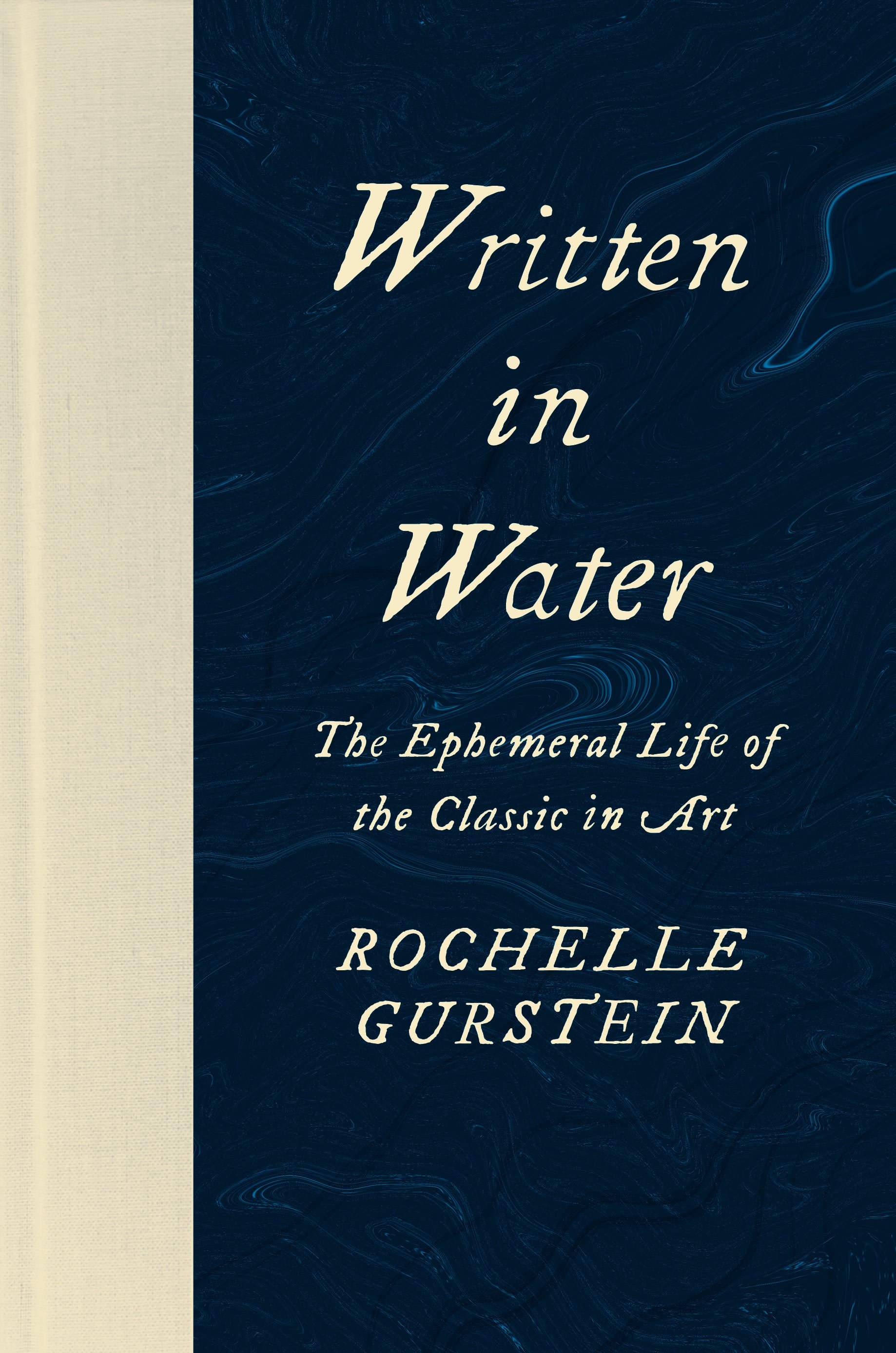Books
Written in Water: The Ephemeral Life of the Classic in Art
Yale University Press, 2024
Is there such a thing as a timeless classic? More than a decade ago, Rochelle Gurstein set out to explore and establish a solid foundation for the classic in the history of taste. To her surprise, that history instead revealed repeated episodes of soaring and falling reputations, rediscoveries of long-forgotten artists, and radical shifts in the canon, all of which went so completely against common knowledge that it was hard to believe it was true. Where does the idea of the timeless classic come from? And how has it become so fiercely contested? By recovering disputes about works of art from the eighteenth century to the close of the twentieth, Gurstein takes us into unfamiliar aesthetic and moral terrain, providing a richly imagined historical alternative to accounts offered by both cultural theorists advancing attacks on the politics of taste and those who continue to cling to the ideal of universal values embodied in the classic. As Gurstein brings to life the competing responses of generations of artists, art lovers, and critics to specific works of art, she makes us see the same object vividly and directly through their eyes and feel, in all its enlarging intensity, what they felt.
Selected by The Economist for “The Best Books of 2024.”
“A rich, provocative work of inquiry and analysis. Anyone who is curious about what has happened to high art in the past couple of centuries, and about how we have arrived at a situation in which ‘it is hard to imagine that a classic can ever exist again as an exemplar for living artists and an agreed-on standard of taste,’ would do well to read Written in Water with the closest attention.”—Brooke Allen, Wall Street Journal
Selected by Wall Street Journal for “12 Books To Read,” July 2024
“The true enemy of the classic is not relativism or wokeness. It is silence.”—The Economist
“[An] outstanding book.”—Matthew Mutter, Current
“Rochelle Gurstein’s sensitive reconsideration of what we mean by a classic is a deeply personal and broadly relevant reflection on what we want from the concept when we wield it. This compellingly written study should be of interest to anyone who cares about beauty, the history of admiration, or about how cultural values change over time. It is bound to make an impact.”—Jonah Siegel, author of Overlooking Damage: Art, Display, and Loss in Times of Crisis
“With elegant clarity and erudition worn lightly, Rochelle Gurstein masterfully reconstructs the vain quest for a timeless standard of classical transcendence in the visual arts. I was smitten from the beginning and approached every new chapter with great anticipation.”—Martin Jay, author of The Dialectical Imagination, Downcast Eyes, and Immanent Critiques
“Rochelle Gurstein has asked an old question with fresh urgency: What is a classic? Her answer shows a real power of admiration, along with a rare sensitivity to the way epochal changes of taste may follow from accidental discoveries or disappointments. This is a work of cultural history that carries on every page the stamp of a restless and inquisitive mind.”—David Bromwich, Yale University
The Repeal of Reticence
Hill and Wang, 1996
This striking study of America's battles over what we can say and do in public traces how principled debate about the character of our common world has been displaced by a new kind of public noise. Rochelle Gurstein offers a brilliant history of the arguments made for and against the forces—invasive journalism, realist fiction, and sex reform—that altered public discourse between the late nineteenth century, when they first appeared, and the 1960s, when new controversies erupted about mass culture, avant-garde art, and sexual liberation. Now the public sphere is dominated by rights talk, puritan-baiting, and knee-jerk liberalism or illiberalism. Is this the best we can do? Gurstein gives a detailed account of how the "party of exposure" successfully opened American public life to matters that had once been hidden away in private, and studies the unexpected consequences of that victory. And she retrieves a way of thinking, wrongly discredited as "Victorian," that could in fact move us beyond our stalemates over what should and what should not be said or done in public. Once, Americans influenced by the "party of reticence" held that if personal matters were exposed to public scrutiny they risked becoming trivial or obscene; they thought that any indiscriminate display of private matters deformed standards of taste and judgment, lowered the tone of public conversation, and polluted public space. Gurstein's penetrating analysis suggests that we must reconsider these positions, and she establishes the vital connection between our legal-cultural history and current debates about obscenity, privacy, and public decency.
“A persuasive and engaging study.”—Jackson Lears, Lingua Franca
“Baudelaire and Oscar Wilde, heroes of modernism and individuality, insisted that ‘we must express everything.’ Thus privacy erupts back into the public sphere. Ms. Gurstein’s strongly argued history of the struggle between public and private will help us find a balance between reticence and exposure. Both are essential.” ―Roger Shattuck, The Wall Street Journal
“A remarkable book: passionate, learned, and fueled by a moral intelligence that never becomes preachy or moralistic.” —Roger Kimball, The New Criterion
“A rare work of serious cultural history that manages to achieve that shiniest of academic goals: contemporary relevance, without treating its subject matter condescendingly or anachronistically.” —Tom Frank, Newsday
"A skillful polemical account of the liberation wars fought against the very idea of privacy in America . . . A book that ought to provoke scholarly discussion and proper debate.” —David Bromwich, Yale University

